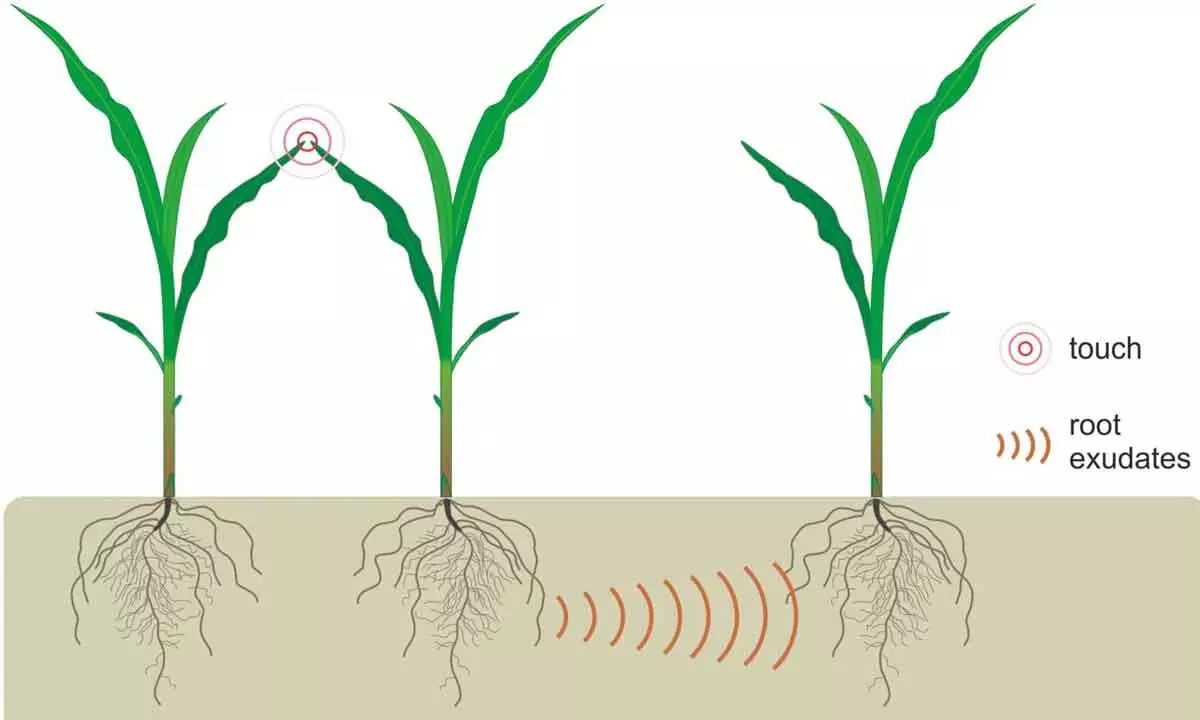Plants under stress found to emit sounds characteristic of stress

While imperceptible to the human ear, the sounds emitted by plants can probably be heard by various animals, such as bats, mice, and insects,” they said in a study published in the journal Cell. “From previous studies we know that vibrometers attached to plants record vibrations. But do these vibrations also become airborne soundwaves - namely sounds that can be recorded from a distance
New Delhi: Researchers recording and analysing sounds emitted by plants under stress have found that they are emitted at a volume similar to human speech, but at high frequencies, beyond the hearing range of the human ear.
The scientists at Tel Aviv University, Israel, found that each type of stress was associated with a specific identifiable sound.
"While imperceptible to the human ear, the sounds emitted by plants can probably be heard by various animals, such as bats, mice, and insects," they said in a study published in the journal Cell. "From previous studies we know that vibrometers attached to plants record vibrations. But do these vibrations also become airborne soundwaves - namely sounds that can be recorded from a distance?" said lead researcher Lilach Hadany.
The first stage of the study, focussing mainly on tomato and tobacco plants, involved the researchers placing plants in an acoustic box in a quiet, isolated basement with no background noise. Ultrasonic microphones recording sounds at frequencies of 20-250 kilohertz (humans cannot hear beyond 16 kilohertz) were set up at a distance of about 10 centimetres from each plant. "Before placing the plants in the acoustic box we subjected them to various treatments: some plants had not been watered for five days, in some the stem had been cut, and some were untouched. "Our intention was to test whether the plants emit sounds, and whether these sounds are affected in any way by the plant's condition. "Our recordings indicated that the plants in our experiment emitted sounds at frequencies of 40-80 kilohertz. Unstressed plants emitted less than one sound per hour, on average, while the stressed plants – both dehydrated and injured – emitted dozens of sounds every hour," said Hadany. The recordings collected were analysed using specially developed machine learning algorithms, a kind of artificial intelligence, which learned how to distinguish between different plants and different types of sounds. These algorithms were ultimately able to identify the plant and determine the type and level of stress from the recordings. Further, the algorithms identified and classified plant sounds even when the plants were placed in a greenhouse with a great deal of background noise, where the plants had been subjected to dehydration over time. Here, the researchers found that that the quantity of sounds they emitted increased up to a certain peak, and then diminished. "Our findings suggest that the world around us is full of plant sounds, and that these sounds contain information - for example about water scarcity or injury.
"We assume that in nature the sounds emitted by plants are detected by creatures nearby, such as bats, rodents, various insects, and possibly also other plants - that can hear the high frequencies and derive relevant information. "We believe that humans can also utilize this information, given the right tools - such as sensors that tell growers when plants need watering. Apparently, an idyllic field of flowers can be a rather noisy place. It's just that we can't hear the sounds!" said Hadany.








